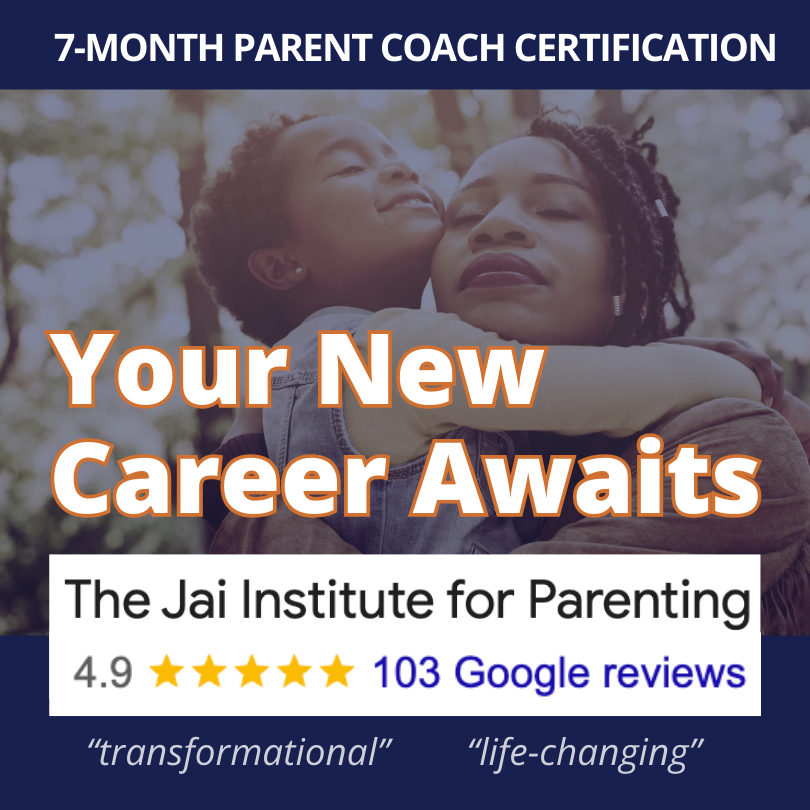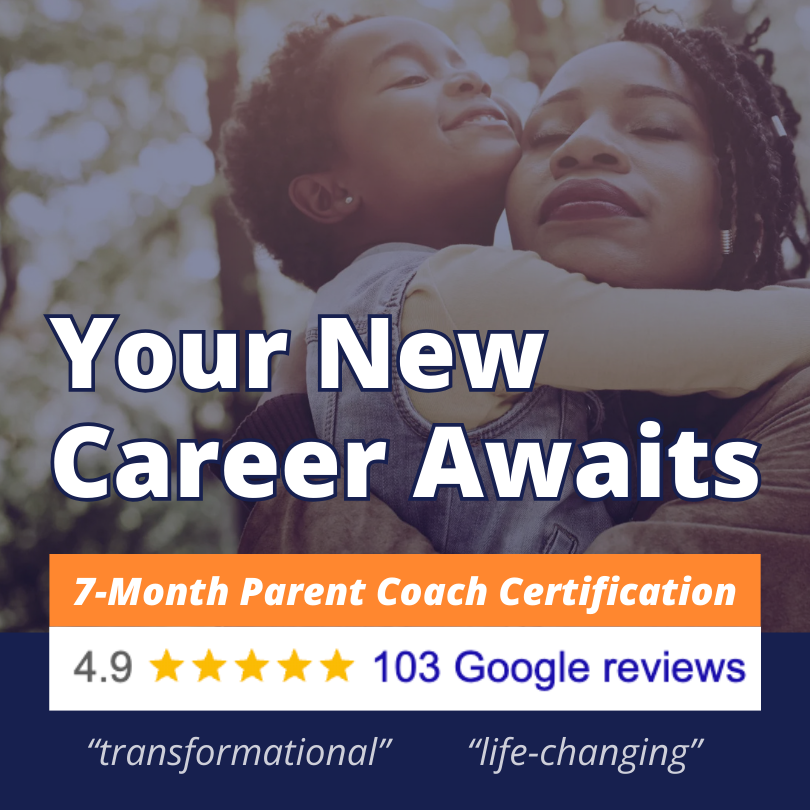The Four Stages of Parenting: A Journey of Growth

As if parenting isn’t hard enough... The truth is that the role we play is ever-evolving. What worked for your oldest child may backfire with your other children. What worked yesterday may not work today.
My son happily co-slept with me well into his toddler years. I didn’t use that crib attached to my bed contraption once. So when my daughter came along, I thought, “I know how to do this sleep thing!”
The first night in the hospital, she fussed and wiggled and squirmed… until I put her in the bassinet. The crib next to the bed thingy was her happy place. She’s 18 now, and I’ve learned to ask if it’s ok to give her a hug or touch her. My son at 20? I can pile into his bed, and he’ll cuddle for days.
As your children grow and mature, they will also need us to shift gears. There’s not a teenager on the planet who enjoys being spoken to like an eight-year-old. There’s not an eight-year-old on the planet who wants to be treated like a toddler.
As a parent, this is hard stuff. I remember the poignant moments. A time when my son was around nine and fell asleep on my lap—wondering if this would be the last time. Or when my daughter no longer wanted my help with her hair.
Empowered parenting is rife with moments of letting go of what was, embracing what is, and moving toward what will be.
Parenting is a journey of constant evolution. As our children grow and hit various developmental milestones, our approach to guiding and nurturing them must also evolve.
There are four key stages in parenting that reflect the changing needs of our children as they mature: Caretaking, Educating, Coaching, and Mentoring. Each stage requires us to adapt and shift roles, helping our children become the independent, resilient individuals they are meant to be.
1. The Caretaking Stage
In the early years, from birth through toddlerhood, our role as parents is purely that of a caretaker. This phase is crucial for early childhood development as we meet every need—feeding, clothing, bathing, and comforting. We ensure their safety, provide love, and create a nurturing environment where they can begin to explore the world. During this time, we lay the foundation for their sense of security and emotional regulation, which are key parts of childhood development.
This is also the stage where we introduce stimulation and basic learning through play and interaction. However, if we stay in the caretaking phase too long, children begin to resist as they naturally seek independence.
I remember my daughter’s fierce independence coming through around age three. She was determined to brush her own hair, and any attempt I made to help resulted in a full-on tantrum. That was my cue—she was ready for more autonomy, even in small ways.
If we linger in the caretaking phase beyond its natural end, children will start to push back, and it becomes clear they are ready to grow into the next stage.
2. The Educating Stage
As our children grow, we shift into the Educating phase. This is a critical time for childhood development, where we teach them the difference between right and wrong, safe and unsafe. At this stage, children crave structure and boundaries, asking endless "why" questions as they try to make sense of the world. Setting clear boundaries for parents becomes essential, ensuring that we are guiding without over-controlling.
I vividly remember my son’s frustration when he was around seven. I tried to remind him how much food to give the dogs, and he shouted, “MOM! I already know that!” It was a humbling reminder that, at times, parents can overstep, making children feel as though we don’t trust their growing abilities.
While boundaries are critical in this phase, we also need to recognize when to step back. If we stay too long in the role of teaching, it can create tension as children push for more autonomy. That’s when it’s time to move into the next phase.
3. The Coaching Stage
As children hit their developmental milestones in the pre-teen and early teenage years, we become coaches. A coach doesn’t play the game—they guide from the sidelines, offering tips, strategies, and encouragement. This is the stage where our children need space to make their own decisions, with us there to offer advice when needed. Setting clear boundaries for teenagers is key, as they still need structure but also require room to practice making their own choices.
If we hold on too tightly in this phase, insisting on making decisions for them, they will push us away. It’s important to remember that the lessons from the earlier stages have taken root, and they need opportunities to make their own decisions, even if it means making mistakes.
The role of a coach is about embracing trust and letting go of fear—trusting that they have internalized what we’ve taught them and trusting that they can learn from their experiences, both good and bad.
4. The Mentoring Stage
The final stage, and perhaps the hardest for many parents, is mentorship. As our children enter adulthood, they no longer need us to tell them what to do. Instead, we become trusted advisors, available when they seek our guidance. In this phase, it’s crucial to recognize and respect their independence while maintaining a supportive presence.
Mentoring is about allowing our children autonomy, trusting that they can navigate their own lives. When we step back and allow them to sort through the implications of their choices, we show them that we believe in their abilities. This fosters confidence and self-reliance.
As I prepare to send my youngest off to college—an airplane ride away—I am deeply reflecting on this transition. It’s a bittersweet moment, filled with pride, excitement, and, yes, a tinge of sadness. But I remind myself that
parenting well is a journey of letting go. Our role is to evolve alongside our children, and at this stage, mentoring them with love and wisdom is the greatest gift we can offer.
Embracing the Transitions
Parenting is a journey through developmental milestones and transitions, and each stage calls for us to adapt. From early childhood development and teaching basic skills to setting boundaries for teenagers to trusting their decisions as young adults—each phase brings new challenges and rewards.
The more we embrace these changes, the more we support our children in finding their wings. When they finally take flight, we can take comfort in knowing that we’ve guided them to this point with love, trust, and wisdom.
As parents, we often face the tension of wanting to protect our children while also knowing we must let them grow. By recognizing and embracing each stage, we nurture not only their development but also our own. This beautiful evolution leads to stronger, more fulfilling relationships with the incredible people they will become.
Claim your free e-book if you want to know more about
how to become an empowered parenting coach. Learn how empowered parenting can help your family and impact your relationship with your children with immediate shifts that you can make as a parent right now!
Meet Your Author, Kiva Schuler
Jai Founder and CEO
Kiva’s passion for parenting stemmed from her own childhood experiences of neglect and trauma. Like many of her generation, she had a front row seat to witnessing what she did not want for her own children. And in many ways, Jai is the fulfillment of a promise that she made to herself when she was 16 years old… that when she had children of her own, she would learn to parent them with compassion, consistency and communication.
Kiva is a serial entrepreneur, and has been the marketer behind many transformational brands. Passionate about bringing authenticity and integrity to marketing and sales, she’s a sought after mentor, speaker and coach.
READ MORE:
Curious for more?














